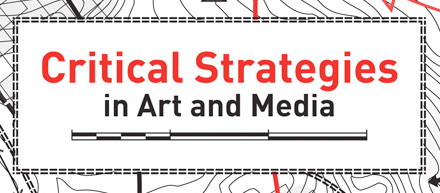Introduction
Critical Strategies in Art and media - Introduction
In September of 2009, the World-Information Institute organized the roundtable conference “Critical Strategies in Art and Media” in New York City. For a full day, digital theorists and practitioners met to debate the future of art and culture in a fast-changing world and in a shifting economic and ecological environment. Profound changes related to global digital information and communication systems challenge the cultural heritage of the future and require independent cultural intelligence analysis. Does art have any relevance beyond the role of the corporate style consultant or a decoration of digital product worlds? Is there any need for art beyond its function as status décor, tax-minimizing investment, or a special market sector?
Today the sacred aura and mythical uniqueness of the object, closely connected with the cult of beauty emerging with the bourgeois world, is still the dominant art form. The deeply ingrained economic logic that mystifies cultural creation and emphasizes unique individuality has never been overcome. Amidst all the pretensions of authenticity, the focus on meaningless "innovations" and "individual" personalities consistently produces market failures. Meanwhile the cultural peacekeeping industry of the military-entertainment complex makes inroads into the imagination and increasingly influences behavior at every level. At the same time the agonizingly dull myth of the Creative Cultural Industries, that they bring the fine arts in from the cold and into the productive forces of the economy, raises questions about dissent and critique. The bourgeois bohemian Creative Class confuses talent with a fetish for lifestyle technology and mistakes ignorance for tolerance. It isn’t just the finance world that’s ensnared in Ponzi schemes: exploited by finance to create meaning for their belief system, arts and culture develop bad practices and mechanisms of selfreinforcing silliness all by themselves. By now gestures of rebellion have become the stuff of everyday marketing. In the supermarket of farcical Web 2.0 socialism, a naive off-the- shelf critique comes at a discount. Greenwashing and community kitsch are the order of the day.
This book is based on the statements, debate and interventions moderated by the editors on September 10, 2009, and include a range of additional commentaries by the participants. An amalgam of postmodern perplexity and bourgeois disorientation in neoliberal market economies achieves and sustains an abysmal lack of vision. With the decline of postmodern theory and a growing weakness of neoliberal ideological hegemony, a serious reassessment of “critical cultural practice” seems necessary.
New York/Vienna, December 2009
Konrad Becker and Jim Fleming
